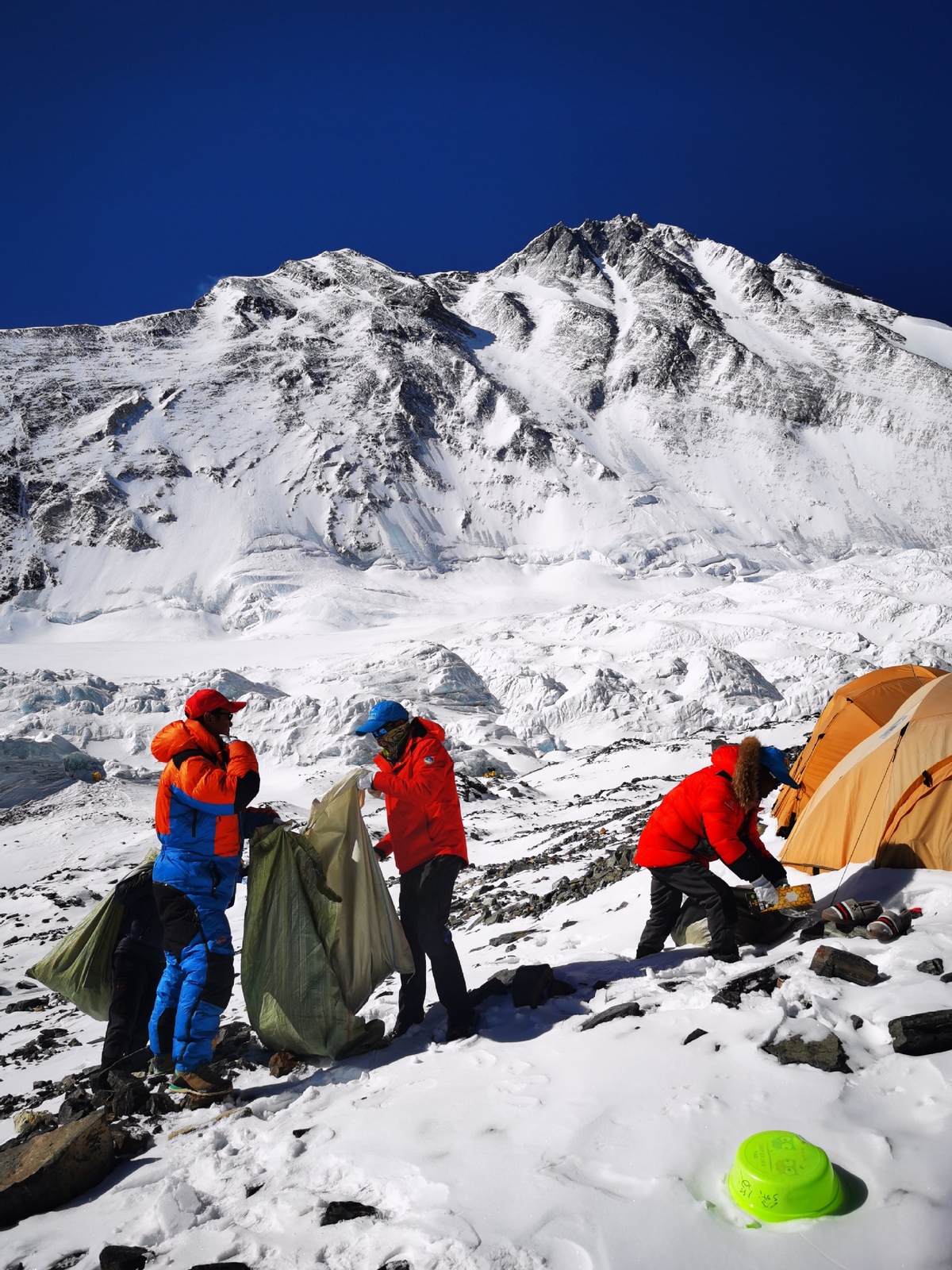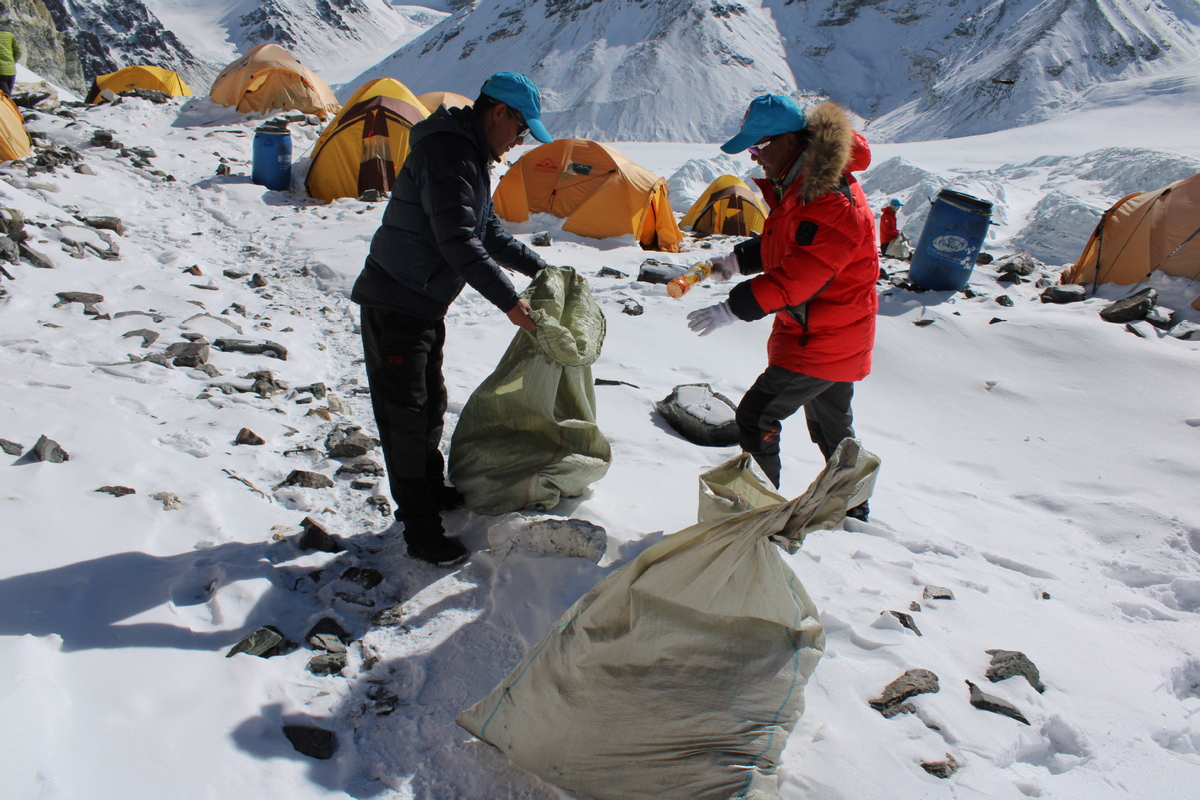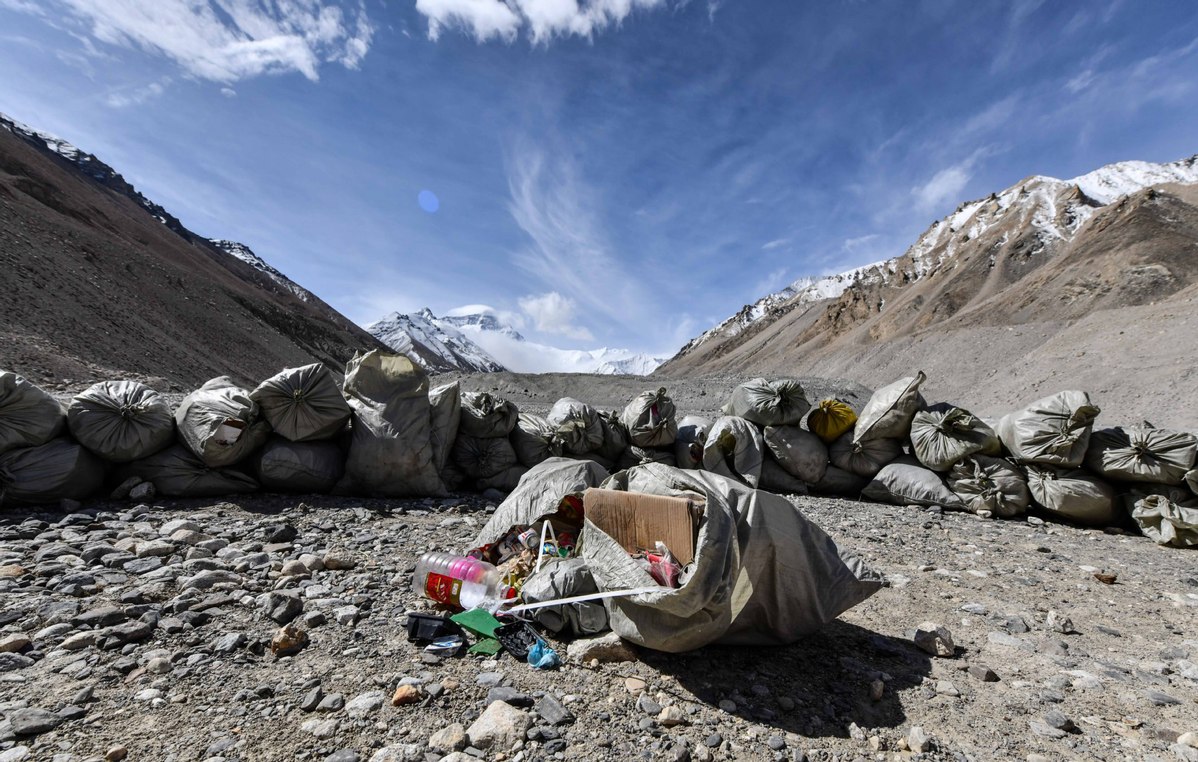Mountains get seasonal cleaning in Tibet
Updated: 2020-05-13 By PALDEN NYIMA in Lhasa, Tibet (China Daily)  Print
Print 



Mountaineering trash is collected on Saturday on Qomolangma, known as Mount Everest in the West, in the Tibet autonomous region as part of an annual cleaning campaign. [Photo/Xinhua]
More than 6 metric tons of waste was collected in three weeks on three mountains in the Tibet autonomous region, the region's sports bureau said on Monday.
The region's mountaineering team, mountaineering association and the sports bureau participated in a ceremony held at the base camp of Qomolangma at an altitude of 5,200 meters on Monday to mark the annual spring cleaning activity.
This spring, Tibet suspended its climbing services for foreign teams due to the COVID-19 pandemic. However, the region continued the annual mountain cleaning.
The three mountains where the cleaning took place are Shishapangma, Cho Oyu and Qomolangma-the last of these is known as Everest in the West. All three mountains are above 8,000 meters in altitude.
This year's cleaning activity started on April 20 and in the three weeks, 3.78 tons of refuse was collected on Qomolangma, 1.83 tons on Cho Oyu and 0.425 tons on Shishapangma, the bureau said.
"The cleanup of the mountains of Cho Oyu and Shishapangma has already concluded, and we have done a partial cleaning of Mount Qomolangma," said Nyima Tsering, head of the sports bureau, adding they expect to finish the cleaning by June.
Tibet, located in the core zone of the Qinghai-Tibet Plateau, is considered a world tourism destination and a vital ecological safety barrier for the country, he said.

Mountaineering trash is collected on Saturday on Qomolangma, known as Mount Everest in the West, in the Tibet autonomous region as part of an annual cleaning campaign. [Photo/Xinhua]
"Sticking to the bottom line of ecological safety and mountaineering environmental protection, we have been strictly following the regulations of mountaineering, and an environmental protection foundation has been established to ensure that what's pure remains unpolluted," said Nyima Tsering.
"Measures such as getting the rural residents trained in mountaineering waste disposal, controlling the number of climbers and upgrading ecological protection facilities have been taken to reach the goal of environmental protection."
Tibet has been enhancing the importance of environmental protection of the mountains and large-scale cleaning activities have been organized there in the past few years.
Waste from mountaineering expeditions-including food packages, beverage bottles, discarded oxygen cylinders, old tents and excrement-has been polluting the environment.
In spring 2018, about 8 tons of waste was collected on the three mountains, and about 10.67 tons was collected in 2019.
This year marks the 45th anniversary of China's first accurate measurement of Qomolangma's height, and a comprehensive campaign of remeasuring the height of the world's highest mountain is underway this week.

Mountaineering trash is collected on Saturday on Qomolangma, known as Mount Everest in the West, in the Tibet autonomous region as part of an annual cleaning campaign. [Photo/Xinhua]








